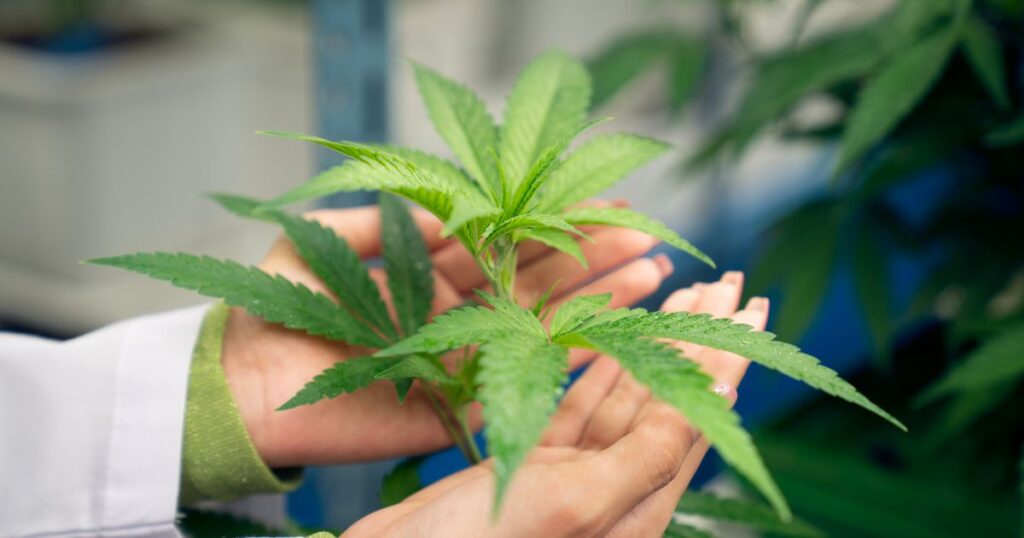If we have said it once, we have said it a billion times… if you are still buying weed based only on its THC content, you are buying weed wrong. The beauty of the cannabis plant is in its diversity, and that diversity is achieved at the microscopic level as varying ratios of dominant cannabinoids like THC and CBD converge with less abundant alternative cannabinoids like THCV, CBG, and others, as well as with unique blends of naturally occurring flavor and aroma inducing terpenes, to create the multitude of cannabis cultivars and consumption options we have today.
One of the necessary components that came with the establishment of regulated cannabis markets has been the introduction of third-party lab testing not only for purity and safety, but also for potency which comes in the form of a statistical breakdown of the inherent chemical constituents of each strain or product tested.
With this testing and subsequent research came the discovery of far more than just THC content, and as hundreds of new terpenes and alternative cannabinoids revealed themselves, everyone from cultivators to consumers started using terms like “full spectrum” to describe ideal weed and started seeking out alternative cannabinoids to craft an ideal experience with their weed.
Long gone are the days of simply lumping everything into either Indica / Sativa / Hybrid. Today we know why some weed makes you lethargic while some makes you energetic, and it has little or nothing to do with how wide the fan leaves are or how tall the plant grows. Instead, it comes down to incredibly nuanced differences in cannabinoid, terpenoid, and flavenoid ratios which directly impact not only how weed tastes and smells, but how it will likely affect you once you consume it.
We now know that THC works better when paired with at least some CBD, and vice versa. However, we are really just scratching the surface of our understanding of how lesser known, less frequently occurring alternative cannabinoids – even when present in minute ratios – can dictate how our high is going to hit us.
Leaving CBD and THC for another article, let’s take a closer look at some of the alternative cannabinoids that are showing up most frequently on cannabis dispensary menus.
Seeking Out Alternative Cannabinoids for an Optimal Experience
Cannabigerol (CBG) – CBG, or Cannabigerol, acts as a precursor to other cannabinoids, such as THC and CBD. This means that all that juicy CBD and THC in your favorite strains starts out as CBG, and throughout the growth and development process, the plant naturally converts it to those more dominant active cannabinoids. Because of the efficiency of that process, CBG is only found in small amounts, if at all. However, as a part of the full spectrum or when isolated CBG has shown promise in treating inflammation, neurological disorders, and helping with pain management.
Tetrahydrocannabivarin (THCV) – Tetrahydrocannabivarin (THCV) is an alternative cannabinoid that shows potential in weight management and neuroprotection. Curiously, THCV appears to be the “anti-munchie” alternative cannabinoid, as it has been shown to act as an appetite suppressant. Some studies have shown that THCV can potentially be effective in treating Type 2 Diabetes as it can help regulate blood sugar levels.
Cannabinol (CBN) – When THC degrades – usually due to age, but can be accelerated by environmental conditions – it morphs into CBN. If you have ever found a long lost joint of some zippy lemony strain you used to love, only to spark it up and wind up glued to the couch for the next half a day, you can likely thank (or blame) CBN. Obviously, isolating or concentrating unnatural ratios of CBN can potentially lead to the creation of an all-natural sleep aid, which is why you tend to see it advertised more in products like cannabis edibles and tinctures, typically known more for their wellness value rather than their recreational use.
Delta 8 / Delta 10 etc. – When the feds opened Pandora’s Box by unintentionally legalizing hemp nationwide, they did so with the ignorant rule that as long as a weed plant has less than 0.3% Delta 9 THC then it is no longer cannabis and is now legal hemp. Of course, they failed to realize or regulate the fact that THC comes in many forms, and that by villifying the post popular one, they’d just incentivize innovative stoners to easily skirt the law by producing and selling a knock off version. Delta 8, for example, is a type of THC with a carbon on its 8th bond instead of its 9th – that’s it! Though it is approximately only half as potent as Delta 9, plenty of people are getting plenty baked off of gas station Delta 8 products.
Alternative Cannabinoids Balance the Scales on Cannabis Effects
The fact is that there are over 100 known cannabinoids and, like we mentioned earlier, research into them is in its infancy. It is exciting to think about what could come next, and how badly Uncle Sam will screw it up!
We highly suggest exploring the use of alternative cannabinoids as a part of your own personal wellness routine – like trying Beard Bros Pharms Nighttime 2:1 (600mg THC/300mg CBN) Cannabis Tincture for a sleep aid. Plant over pills every time!


















